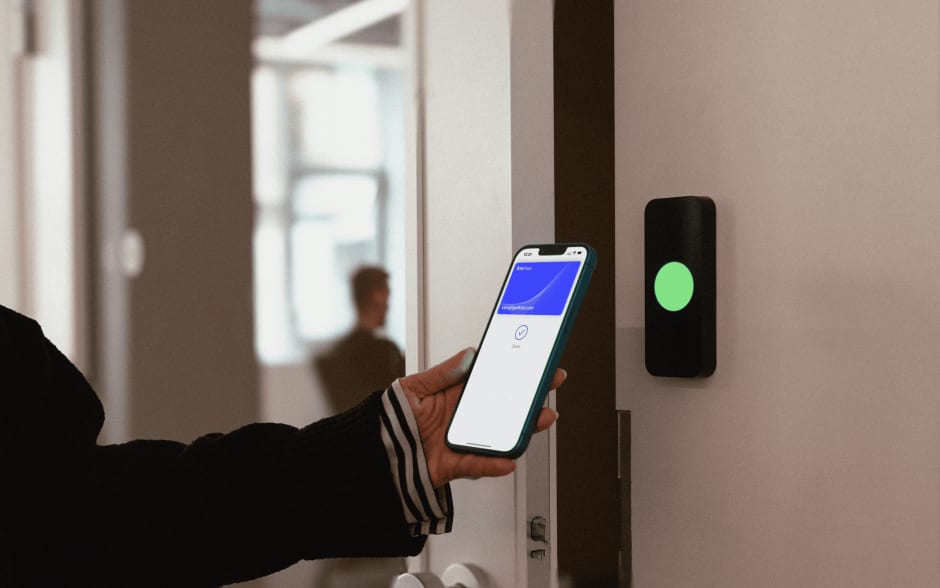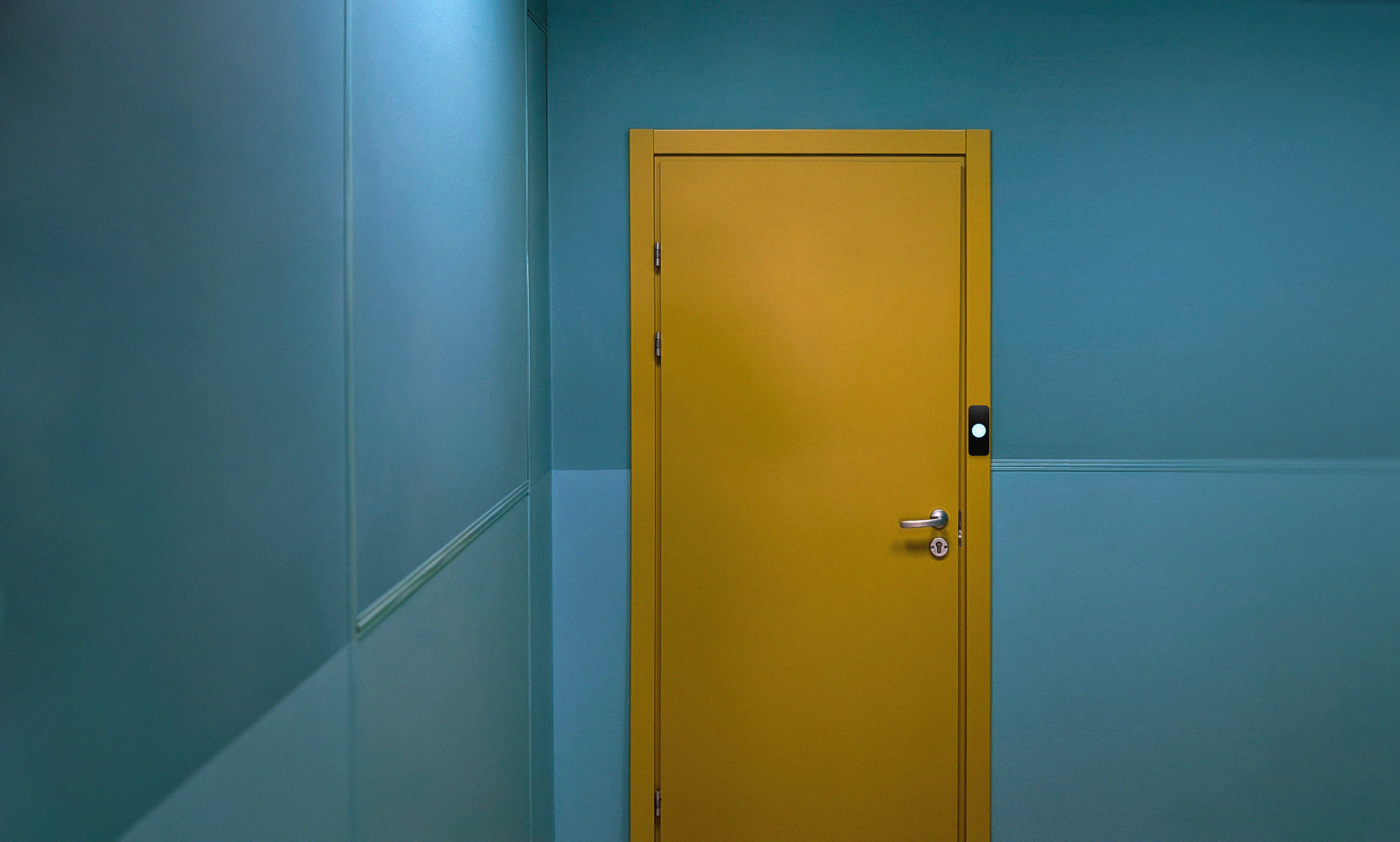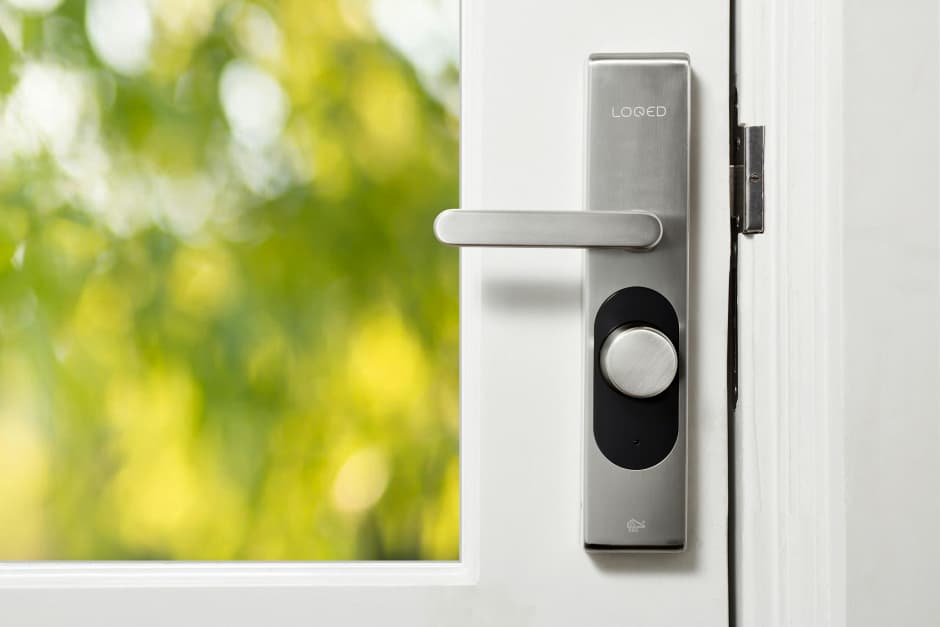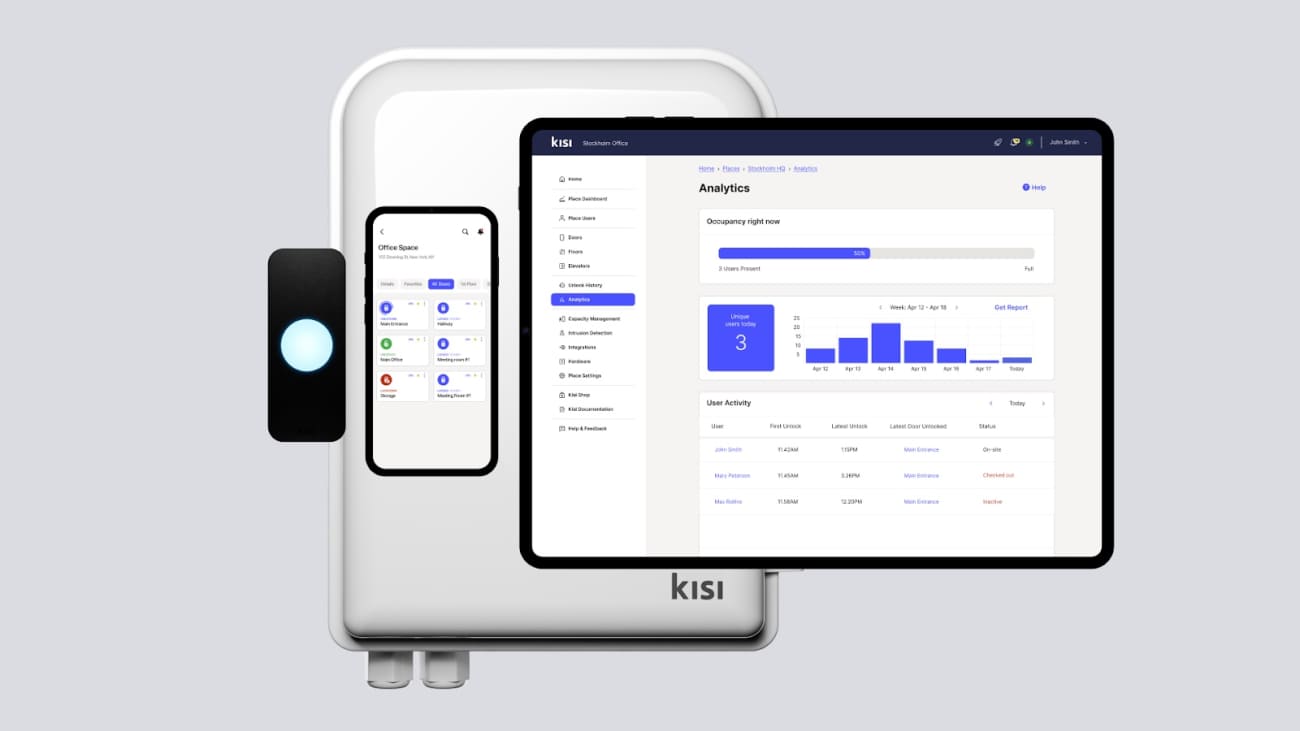Empty, unsecured buildings, rooms, or facilities are an open invitation to intruders who can get access to confidential information, damage your property, and put people at risk. Along with barriers, video surveillance, and security staff, commercial locks play a crucial role in controlling who comes in and out of your premises.
In this guide, you’ll learn everything you need to know about commercial locks, including what options are available and how to select the best lock for your organization. Having this information is essential for any building owner, facilities manager, business leader, and security expert who wants to ensure their property remains secure at all times.

What are commercial locks? #
As the name suggests, commercial locks are locks that are appropriate for commercial use. That means they meet the standards set by organizations like the Builders Home Manufacturers Association (BHMA) in the United States, which determines whether locks meet the necessary quality and performance requirements to adequately secure a commercial space.
Commercial vs. residential locks #
One of the most important things to understand about commercial locks is how they differ from residential locks. While residential locks are used for homes, commercial locks are appropriate for a variety of settings such as:
- Office buildings
- Retail businesses
- Industrial facilities
- Multi-tenant buildings
- Schools
- Government offices
Generally speaking, these locks are much more secure and reliable than residential locks. They can withstand frequent use and are more convenient for multiple users. In most cases, residential locks are only intended for use by an individual or family. Commercial locks, on the other hand, have to be easy to access and durable enough to withstand regular use by multiple people every day.
The purpose of a commercial door lock #
The primary reason to install commercial door locks is to achieve consistent security for your property. These locks are difficult to tamper with, ensuring that your premises are locked down even when a security team isn’t on site.
Commercial door locks should also increase convenience and safety for your employees or tenants. As part of an overall access control system, they limit who can enter and exit your building. This helps prevent unauthorized access and potential criminal activity, including theft and vandalism.

Commercial door lock types #
Researching commercial locks can quickly get overwhelming if you don’t know what to look for. There are many different kinds of locks available, and knowing how to distinguish between them will help you find the best solution for your organization.
Mechanical #
In the past, commercial buildings were usually secured with mechanical locks, which use physical elements to secure a door. They’ve been in use for hundreds of years because they don’t use electricity or batteries to operate. Instead, the user inserts and turns a key to unlock the door.
Mechanical locks can be broken down into several categories. First, and least common for commercial purposes, are cylindrical knob locks. Although they’re easy to install, these locks fail to meet many accessibility requirements, which can create compliance problems for commercial properties and business owners.
Cylindrical lever locks serve as an alternative. As with knob locks, they’re installed by boring two circular holes in the door. However, their design makes them a better fit for doors that must meet accessibility requirements.
While it’s not generally the primary locking mechanism, you can also install a commercial deadbolt to strengthen your door security. Deadbolt locks provide an additional layer of protection if the main lock fails.

Electronic #
Many building owners and managers are moving away from mechanical locks and instead implementing different types of electronic locks. Electronic locks are often keyless, meaning you can unlock them without a traditional key—although they may have a keyhole just in case a backup unlocking method is necessary.
Rather than inserting a key, electronic lock users rely on other methods, such as mobile credentials, keypads, and key cards. Kisi, for instance, allows users to unlock their doors with employee badges stored in their Apple Wallets.
Some of the most common categories of electronic locks include:
- Electric strikes: Electric strike locks open when they receive a signal indicating it should move the hinged metal latch to an unlocked position. They need to be connected to an access control reader or controller and require a triggering device, such as a keypad or wireless sensor.
- Magnetic: Also known as maglocks, these locks use a combination of electricity and magnets to lock and unlock the door. They also require a trigger, such as a key fob or card.
- Electrified or wired mortise locks: Like mechanical mortise locks, these locks require you to create a pocket in the edge of the door. Electrified varieties of these locks are different in that they include an electrical component that prevents the latchbolt from retracting unless the user triggers it with a device, such as a reader or a controller.
- Electrified push bars: Push or panic bars are generally used for emergency exits, where people need to unlock the door and leave as quickly as possible. Pushing the bar activates the unlocking mechanism and allows you to open the door.
In addition to these options, you can also opt for smart locks, which you don’t have to wire. Smart locks have a number of advantages, starting with ease of use—users don’t have to connect it to an access control system and can download an app to their phone and use it when it’s time to lock or unlock a door. Businesses often use commercial smart locks for doors that do not require a high level of security or when they can’t hide the cables electronic locks require. Commercial smart locks are recommended if companies need a quick fix and don’t have the time, space, or resources to install wired electronic locks.

How to choose the right commercial lock for your business #
Business and building owners have a wide range of options available when it comes to commercial locks, and what works perfectly for one property could be the wrong choice for another. These are some of the key factors to consider when choosing a commercial lock.
Grade and security needs #
Commercial door locks are available in different grades, which indicate the level of performance that you can expect. Grades are generally based on these features of the lock:
- Function
- Application
- Security
- Durability
- Cycles
- Material
- Finish
In the United States, the BHMA defines three levels of commercial lock grades. Grade 1 is the highest performing, offering the most security for your premises. They’re often used in environments where security is a top priority, such as healthcare facilities and schools. Grade 2 and Grade 3 locks are also effective and undergo extensive testing, but they’re held to a lower standard than those that are classified as Grade 1.
While grade is not the only factor to consider when selecting a lock, you should identify the grade and determine whether the lock is up to the task at hand. For example, if you’re installing locks in an environment with extremely frequent use and spaces that require a high level of security, a Grade 1 lock may be the best solution. In contrast, if you want to secure relatively low-level space, such as a supply closet or meeting room, a Grade 3 commercial lock probably offers more than enough protection.
Accessibility #
To meet regulatory requirements and accommodate the needs of all potential users, your commercial locks should be fully accessible. Some styles, such as cylindrical knobs, don’t meet many common accessibility standards, including the Americans with Disabilities Act (ADA) in the United States. Locks that use levers, mobile apps, and touchless technology are more likely to meet your needs.
Convenience #
Convenience is a significant concern for commercial locks, especially when securing a space many people need to access regularly. Using the right locks not only makes life easier for users but can also keep foot traffic moving smoothly and prevent unnecessary delays or bottlenecks.
Traditional keys and mechanical locks are usually the least convenient option available for everyone. Businesses have to distribute and keep track of any keys they issue, and employees need to have their keys with them at all times to access the space. Electronic options are typically much faster and easier to use, and businesses don’t have to worry about redoing all the locks if someone accidentally loses their key. What’s more, electronic locks enable remote, centralized access management.

Integrations #
Choosing locks that are compatible with other elements of your security system, including your access control system, minimizes vulnerabilities and makes your security processes more seamless. For example, many commercial locks can be connected to Kisi’s access control system. This includes magnetic, wireless, and electric strike locks.
Flexibility and scalability #
Another point to think about when choosing a commercial lock is how difficult it will be to install additional locks or expand your system as your business grows. If you choose mechanical locks, for instance, you’ll need to order additional keys and hardware if your physical space expands to include more rooms or locations. Electronic locks and access control systems are easier to scale because they don’t require you to produce and distribute new physical keys.
Installation and maintenance tips #
Because building security is such a high priority, some businesses are concerned about installing their own locks. If that’s the case, you can hire a professional installer to handle the process and ensure it’s completed correctly.
If you’re installing your own locks, keep in mind that precision can be critical. Take the time to measure carefully and confirm the lock placement. After installing your locks, connect them with your access control system and train staff or building tenants on how to properly use and maintain them. Give them specific guidance on what they should do if they encounter a problem or if their access credential unexpectedly fails.

For the best possible security, you’ll also need to maintain your locksets. These maintenance tips can help increase the longevity of your commercial locks and improve their performance:
- Check regularly for signs of wear and tear, including loose screws and broken parts.
- Inspect patches, strike plates, and electrical pieces, and make any necessary repairs as soon as possible to prevent additional issues from developing.
- If necessary, apply regular lubrication to prevent dirt and dust from accumulating and causing the lock to stick.
- Clean whenever needed to remove buildup.
- Conduct security audits to evaluate your commercial locks, as well as your security system as a whole.
As with installation, you have the option to carry out maintenance activities independently or work with a professional.
Optimize your security with commercial locks and Kisi #
Although it might seem like a relatively minor detail, the commercial locks you select for your building can significantly reduce intrusion attempts and security incidents. Think of these locks as the protectors of your premises, and keep in mind that they’re at the heart of your entire security and access control system.
No matter what type of commercial locks you currently use, Kisi can offer guidance on how to enhance your security and access control. Reach out to the Kisi team to learn more about how commercial locks and Kisi’s access control system work together to protect your property.


